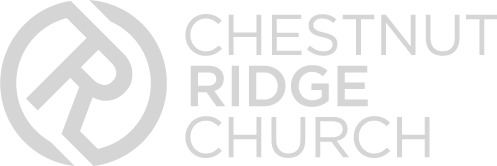Reading the Bible and praying each day are important next steps to take. These activities are referred to as private spiritual disciplines, because they are actions you take on your own to grow in your relationship with God.
Hearing from God through the Bible and talking to God through prayer aren’t “Christian chores” that we have to do for God. These are daily opportunities for us to be with our Heavenly Father and experience His great love for us. Through Him, we feel refreshed and renewed, ready for what each new day brings.
Hearing from God through the Bible and talking to God through prayer aren’t “Christian chores” that we have to do for God. These are daily opportunities for us to be with our Heavenly Father and experience His great love for us. Through Him, we feel refreshed and renewed, ready for what each new day brings.
Begin Reading the Bible
- Purchase a Bible, download the YouVersion Bible App, and/or visit www.bible.com. In our modern world, we are blessed with many great translations of the Bible. At The Ridge, we enjoy using the Holman Christian Standard Bible (HCSB) translation, and we recommend using it or any other translation you find approachable and easy to read. If you are planning to purchase a Bible, consider buying a Study Bible that includes helpful study notes from Biblical scholars.
- Decide your approach to reading the Bible.
Here are some good options:
Use a Daily Bible Reading Plan to help you stay on track. You can find plans at www.bible.com/reading-plans. The important thing is picking one that you can stick to.
Or, you can simply pick a book of the Bible and start reading a chapter every day. For starters, you could read a chapter from Psalms, Proverbs, or one of the gospels – Matthew, Mark, Luke or John. Some people find it helpful to read the “chapter of the day.” For example, on the 1st day of the month, you would read the 1st chapter of Proverbs; on the 2nd day read the 2nd chapter; and so on.
If you would like to read through the whole Bible, here is an approach you can take. Start with the gospel of John. Then read the other three gospels, Matthew, Mark, and Luke. After the gospels, finish reading the New Testament (Acts to Revelation), and then read the Old Testament from Genesis to Malachi.
When reading through a whole book, it can be helpful to put a check mark by the chapters to help track your progress. If you feel stuck in the particular book that you are in, it’s ok to skip around to another book like the Psalms or Proverbs, and then pick it back up where you left off.
- Develop a consistent routine of when and where you read. Some people prefer reading in the morning at their kitchen table or a particular chair when their minds are clear. Others prefer before going to sleep. Whatever works best for you, do that, but make it a routine.
- Read – Reflect – Respond. After you read a verse or chapter, take a few minutes to reflect on what you read, and then consider how you can respond to God’s Word by believing His truth and applying it to your life.
Feature Two
- Remember that prayer is simply talking to God—you can be yourself and talk to Him as your loving Heavenly Father. You don’t need to use fancy words or say a lot. Communicate what is on your mind and be honest with God.
- Many believers have found the A.C.T.S. method for prayer helpful. This acronym is based on Jesus’ prayer in Matthew 6:9-13 and contains 4 pieces that are essential to prayer: Adoration, Confession, Thanksgiving, and Supplication.
Adoration – Praise God for who He is and what He has done. See Psalm 145 for an example.
Confession – Be honest before God about the sin in your life. Acknowledge the ways that you have sinned against God and others. See Psalm 51 for an example.
Thanksgiving – Thank God for what He has done in your life. See Psalm 111 for an example.
Supplication – Ask God for specific requests and trust that He will answer your requests according to His will, not our own. See Psalm 86 for an example.
- Think through the natural times in your day in which you can talk with God through prayer: when you wake up, go to bed, at meals, in the car, etc.

